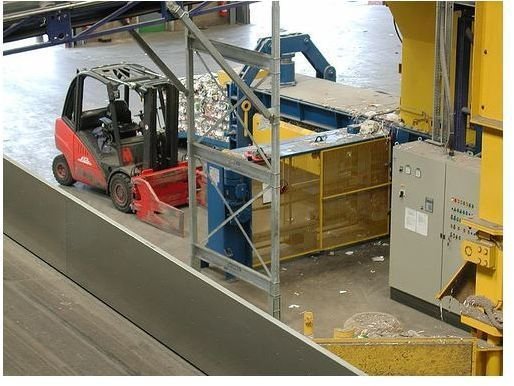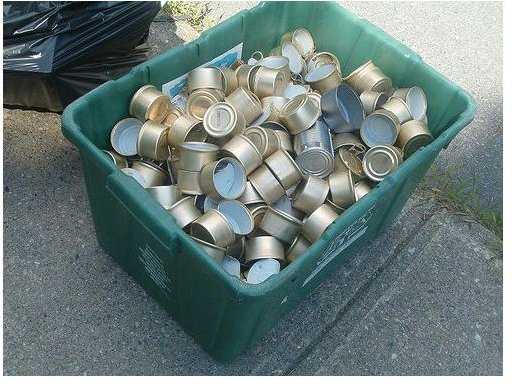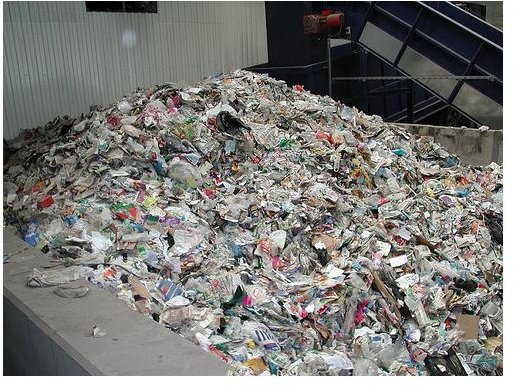Tips on How to Start a Recycling Business
Develop a Niche
The first step when considering how to start a recycling business is to select a niche. Recycling is a wide area and encompasses processing solid waste, liquid waste, electronic waste (e-waste), industrial waste, plastics, rubber, paper, food waste, garbage, and more. Processing of each waste type requires specialized machinery and technology.
A start-up entrepreneur needs to identify the type of waste to recycle. The decision depends on availability of the waste type, the extent of competition in the locality, and the demand for the product. Materials such as aluminum, corrugated cardboard, used oil, office or computer paper, newspaper, green waste, tires, steel, copper, brass, and glass, for instance, have a reliable market and make for good recycling business opportunities.
Ensure Supply Chain Stability
Identifying waste, or raw material sources, and setting up a mature infrastructure to collect waste, is a major yet underestimated challenge in the recycling business. Ways of achieving this are:
- Approaching houses, shops, companies, and waste disposal centers, to collect things they plan to dispose
- Keeping abreast of the latest developments. For instance, advancement of technology makes old machines and products obsolete
- Offering a free waste audit for firms to create awareness on the benefits of recycling. and obtaining e-waste from them
Most recycling businesses collect waste from their vicinity, and as such the sources of raw material supply would depend largely on the location of the recycling plant. The location in turn depend on factors such as land cost, zoning regulations, transportation costs, availability of landfills or incinerators to dispose of the residue after recycling, and proximity to sources of raw materials and markets for finished goods.
The Process
The broad technique of recycling is:
- Shredding the waste.
- Passing the shredded waste through a series of microwave machines to kill bacteria.
- Passing the sterilized waste through magnetic drum separators to separate metallic waste from non-metallic waste.
- Passing the separated waste through electro-static separators to remove all plastics and non-magnetic metals.
- Passing the reside through water sink tanks and applying the float-sink technology. Paper and cloth float on the water and glass particles sink .
Each separated category has separate recycling methods. The easiest to recycle and the most profitable are metal, plastics, and glass.
Apart from the specific machinery, such as magnetic and electro-static filters and microwave machines, the general materials and resources required for the recycling process include sorting tables, a large-scale for weighing the waste, separate bins for each sorting category, gloves, surgical masks, a calculator, and materials for recording data.
Legislation

While there is no comprehensive federal waste recycling legislation, there exist many regulations and guidelines to follow when developing waste recycling programs. The major legislation and regulation at the federal level include:
- Code of Federal Regulations (CFR) 40 Part 243 concerning guidelines for storage and collection of residential, commercial, and institutional solid waste.
- Code of Federal Regulations 40 Part 256 concerning guidelines for developing and implementing State Solid Waste Management Plans.
- Resource Conservation and Recovery Act, which addresses hazardous waste and solid waste management issues.
- Hazardous and Solid Waste Amendments (HSWA).
- Pollution Prevention Act.
- Occupational Safety and Health Administration (OSHA) regulations.
- Environment Protection Agency (EPA) regulations.
All states have regulatory authorities for solid waste recycling, and in fact, much of the regulation affecting recycling is local. Local governments regulate landfills, levy tipping fees, provide mandates for recycled content, and offer economic incentives for recycling.
Apart from compliance with the legislation and regulations, the recycling business needs to follow legislations usually required to start a new business, such as obtaining a business license.
Safety Considerations
The waste recycling business is hazardous in nature. Unsorted waste, may contain broken glass, rusted iron, dangerous chemicals and acid – which if approached casually may cause fatal injuries. Important safety considerations for the business include:
- A good understanding of the safety regulations and polices for each type of waste, including Dangerous Good Regulations, and doing everything to ensure compliance including, but not limited to, maintaining an emergency first aid kit.
- Providing protective clothing such as long-sleeved shirts, pants, gloves, and surgical masks for workers, and ensuring that workers do wear such protective gear when working with waste.
- Providing training to employees to identify and handle hazardous materials.
Costing
Costing is important for any business, and more so for a recycling business, where the entire business model depends on the costing estimates.
The capital costs include land, the recycling factory, machinery, and the vehicle to collect the waste. The recurrent operation costs include labor, suppliers, administration overhead costs, vehicle fuel and maintenance costs, staff salary and training costs. An important consideration is to make allowances for depreciation of machinery and drums that wear out frequently.
The major sources of revenue include sale of scrap materials such as extracted metals and glass, collection of recycling fees from companies and others, and tax incentives. The pricing of most products is tied to commodity prices, and fluctuates.
Entrepreneurs looking at tips on how to start a recycling business need to ensure that they recycle materials where the sale of salvaged metals and other scrap generates more revenue than the cost. The alternative approach is to collect and process waste from companies and institutions who actually pay to recycle their waste, out of social or statutory obligations. The business would also need to ensure sufficient volumes of scale for profitable operations.
Marketing

The critical activity of any business is marketing, and the case of a recycling business is no different. A recycling business remains unviable if there are no takers for the recycled products.
One concern of entrepreneurs looking at starting a recycling business, is to understand the use of the recycled product. For instance, old tires find use as an energy resource to burn in cement kilns and electric utilities, in civil engineering uses such as building embankments, drainage layers, retaining walls and breakwaters, and in rubber-modified asphalt. The task of the recycling business is to match end-user specifications to the processing capability. Understanding the end-user market is critical, for the market for recycled goods very often depends on the market of virgin stocks.
For selling, consider the national, regional and local markets of the products, and develop a good network to sell recycled products. A good starting point to identify buyers is the many industry and trade journals that provide buyer lists.
The recycling entrepreneur can increase business by
- Performing competitor analysis, to benchmark and spot vulnerabilities.
- Creating new markets by raising awareness. Performing free waste audit in companies is a step in this direction.
- Undertaking promotional activities such as advertising, sales promotion, personal selling, publicity, and public relations.
The mix depends on factors such as available funds, competition, and the stage of your business life cycle.
Recycling markets remain volatile, owing to price and demand-supply fluctuations. You also need to bear in mind prices of virgin materials such as price for recycled plastics being directly dependent on price for virgin plastic, legislative initiatives that may make recycling mandatory, social and other pressure to conserve the environment that may make more people recycle, and technical innovations.
Update Yourself
Finally, success in any business endeavour depends on keeping up to date on the latest trends and developments. The recycling industry remains in a state of constant flux, with new regulations, technologies, systems, and products evolving by the day. The heightened concerns about the environment means that recycling news usually appears prominently in newspapers. Other resources to obtain latest news and developments related to the industry are the National Solid Wastes Management Association, Environmental Protection Agency, American Plastics Council, the Scrap Tire Management Council, and similar trade bodies.
References
-
Image Credit
- flickr.com/Gavin Stewart under CC 2.0 license
- flickr.com/Gavin Stewart under CC 2.0 license
- flickr.com/Lerif K-Brooks under CC 2.0 license <4. US Environment Protection Agency. “Municipal Solid Waste Generation, Recycling, and Disposal in the United States: Facts and Figures for 2009.” Retrieved from http://www.epa.gov/osw/nonhaz/municipal/pubs/msw2009-fs.pdf on March 21, 2011.
- Association of Small Business Centers. “Writing Business Plans for Recycling Enterprises.” Retrieved from http://www.csu.edu/cerc/researchreports/documents/WritingBusinessplansForRecyclingEnterprises1998.pdf on March 31, 2011.
